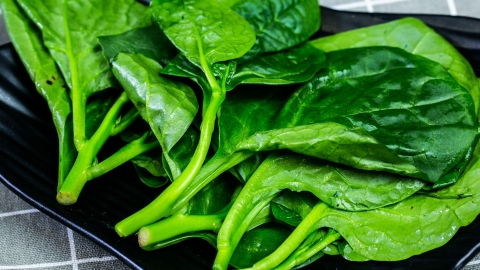Can I eat Malabar spinach if my white blood cell count is high?
Whether a person with elevated white blood cell count can eat Malabar spinach (Basella alba) depends on the cause of the elevation. If the increased white blood cell count is due to non-pathological factors, moderate consumption is generally acceptable. However, if it is caused by a severe illness, consumption is not recommended. Detailed explanations are as follows:

If the elevated white blood cell count is caused by non-pathological factors such as bacterial infection, strenuous exercise, or stress response, and the patient has no digestive system diseases or other specific contraindications, Malabar spinach can usually be consumed in moderation. Malabar spinach is rich in vitamin C, dietary fiber, and minerals such as calcium and iron. It can help enhance immunity, promote intestinal motility, and has no negative impact on recovery.
However, if the elevated white blood cell count is due to serious diseases such as acute infections, blood disorders, or autoimmune diseases, dietary restrictions may be necessary. In such cases, the high fiber content of Malabar spinach may increase the burden on the gastrointestinal tract, so excessive consumption is not recommended. Additionally, if the patient is undergoing chemotherapy, special dietary guidelines may apply, and Malabar spinach should also be avoided.
Patients with elevated white blood cell counts should maintain a balanced diet, consume adequate nutrients in appropriate amounts, avoid picky eating or overeating, and promote physical recovery.







